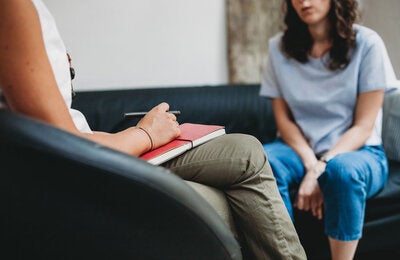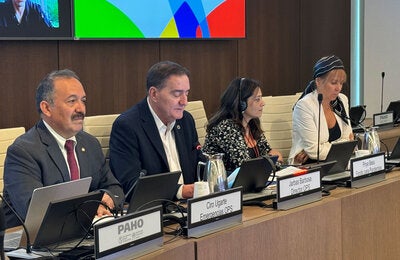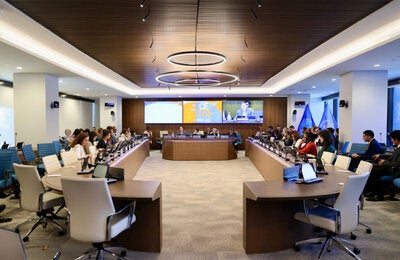
![]()
On May 17th, the Pan American Health Organization/World Health Organization (PAHO/WHO) held the first Global Internet Day. Some 400 people connected through different Internet platforms discussed the use of social media to promote health in the Americas.
More than 400 people participated in discussions on the use of social media to raise awareness about public health issues
Washington , D.C. , 17 May 2011 (PAHO/WHO) - Today, the Pan American Health Organization/World Health Organization (PAHO/WHO) held the first Global Internet Day. Some 400 people connected through different Internet platforms discussed the use of social media to promote health in the Americas.
The objective of the Social Media and Public Health Festival, transmitted live via Internet and followed through Facebook, Twitter, Linkedin and Elluminate, was to stress the importance of the Internet and social media in improving aspects of public health. It also sought to bring PAHO closer to social media users to inform them about issues such as chronic noncommunicable diseases and strengthen the Organization's position in the information society.
During the event, it was announced that a Strategy and Plan of Action on eHealth for the Region would be announced at the upcoming Directing Council in September of this year. The Deputy Director of PAHO, Dr. Jon Andrus, noted that one of the objectives of this strategy will be to facilitate cooperation in disseminating information on public health, with emphasis on emergencies, through the use of social media. He also invited everyone to participate in the development of an organizational Strategy on the Use of Social Media, which will be ready in the coming months.
Assistant Director of PAHO, Dr. Socorro Gross, underscored that this event was a milestone in the history of the Organization and in the way that technical cooperation activities are carried out. She invited the participants to get connected so that they could network on health issues throughout the Region.
As a distinguished guest, David Hale, technical information specialist from the U.S. National Library of Medicine, reviewed the different uses that are being made of social media in areas linked with public health. He pointed out that honesty is the best policy when it comes to managing information in the social media, because it lends credibility to the Organization. He also stressed that social media are a tool that enables the Organization to fulfill its mission.
Marcelo D'Agostino, Area Manager of Knowledge Management and Communication, likewise pointed out the number of people who navigate the social media and the Internet and the cultural, cognitive, technological, and generational convergence in which these networks operate. He urged participants to learn about these media and use them creatively to apply them in health issues to assist the Region. "We want to consolidate ourselves as a learning organization," he emphasized.
Later, Pedro Urra, Director of BIREME, stressed the importance of putting the Virtual Health Library at the service of the social media, pointing out that this would strengthen the Organization's technical cooperation activities.
During the celebration, it was also emphasized that five years ago, the Director of PAHO/WHO, Dr. Mirta Roses, created her blog, the first in Organization.
Cancer, diabetes, heart, and lung disease are examples of chronic noncommunicable diseases, explained Cristina Mañá, PAHO specialist in the Chronic Noncommunicable Diseases Project. She added that these diseases could be prevented if the four risk factors (smoking, the harmful use of the alcohol, lack of physical activity, and unhealthy diet) were attacked from different perspectives, an item that will be on the table next 19-20 September at a high-level United Nations meeting that will bring Heads of State together to agree on actions that will help prevent these diseases. Mañá announced that citizens will be able to use social media to express their support for this cause. A Facebook page was opened so that people can join in the fight against chronic noncommunicable diseases and text messaging will be used.
In the meantime, Lauren Vulanovic, of the PAHO/WHO Safe Motherhood Initiative, announced the launch of a contest for stories on motherhood, targeting students in primary and secondary school, who can send their submissions through different online platforms.
PAHO was established in 1902 and is the world's oldest public health organization. It cooperates with all the countries of the Region of the Americas to improve the health and quality of life of the peoples of the Hemisphere, and its secretariat acts as the Regional Office for the Americas of the World Health Organization (WHO). Follow us on Facebook, Twitter, Linkedin, and our website: www.paho.org.
For more information, visit these links:



